- Clone
- 6D4 (See other available formats)
- Regulatory Status
- RUO
- Other Names
- PERB11, MIC, MHC class I chain-related protein A, MICA, PERB11.1, MHC class I chain-related protein B, MICB, PERB11.2
- Isotype
- Mouse IgG2a, κ
- Ave. Rating
- Submit a Review
- Product Citations
- publications
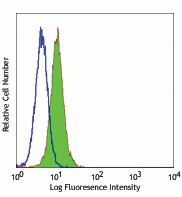
-

Human Hela cell line stained with purified 6D4, followed by anti-mouse IgG FITC
| Cat # | Size | Price | Quantity Check Availability | Save | ||
|---|---|---|---|---|---|---|
| 320902 | 100 µg | 95€ | ||||
6D4 antibody reacts with a common epitope of the human nonclassical MHC class I chain-related protein A (MICA) and B (MICB), also known as PERB11.1 and PERB11.2. The MIC gene is located in MHC class I region. MICA/B are 65-75 kD stress-inducible glycoproteins with highly polymorphic. They are MHC class I-like transmembrane molecules that do not associate β2-microglobulin and do not present peptides. MICA and MICB share 85% identify, and are mainly expressed on Intestinal epithelial cells, epithelial tumor cells, endothelial cells, fibroblasts, and IFN-α-stimulated dendritic cells. MIC molecules bind NKG2D, an activating receptor, and induce activation of NK cells, and subset of CD8+ α/β T cells and γ/δ T cells, as well as suppression of T cell proliferation. MICA/B recognition is involved in the regulation of tumor surveillance, viral infection and autoimmune diseases. The 6D4 antibody is able to block MIC mediated cytotoxicity.
Product DetailsProduct Details
- Verified Reactivity
- Human
- Antibody Type
- Monoclonal
- Host Species
- Mouse
- Formulation
- Phosphate-buffered solution, pH 7.2, containing 0.09% sodium azide.
- Preparation
- The antibody was purified by affinity chromatography.
- Concentration
- 0.5 mg/ml
- Storage & Handling
- The antibody solution should be stored undiluted between 2°C and 8°C.
- Application
-
FC - Quality tested
IHC-P, IHC-F, IP, Block - Reported in the literature, not verified in house - Recommended Usage
-
Each lot of this antibody is quality control tested by immunofluorescent staining with flow cytometric analysis. For flow cytometric staining, the suggested use of this reagent is ≤ 0.5 µg per 106 cells in 100 µl volume or 100 µl of whole blood. It is recommended that the reagent be titrated for optimal performance for each application.
- Application Notes
-
Additional reported (for the relevant formats) applications include: immunohistochemistry2,3,5 of acetone-fixed frozen sections and formalin-fixed paraffin-embedded tissue sections, immunoprecipitation7, and blocking2,3 of MIC mediated cytotoxicity. The Ultra-LEAF™ Purified antibody (Endotoxin < 0.01 EU/µg, Azide-Free, 0.2 µm filtered) is recommended for functional assays (Cat. Nos. 320919 & 320120).
-
Application References
(PubMed link indicates BioLegend citation) -
- Groh V, et al. 1999. Science 279:1737.
- Groh V, et al. 1999. Proc. Natl. Acad. Sci. USA. 96:6879.
- Groh V, et al. 2001. Nature Immunol. 2:255.
- Li Z, et al. 2000. Immunogenetics 51:246.
- Park EJ, et al. 2003. J. Immunol. 171:4131.
- Jinushi M, et al. 2003. J. Immunol. 171:5423.
- Wu J, et al. 2003. J. Immunol. 170:4196.
- Product Citations
-
- RRID
-
AB_493189 (BioLegend Cat. No. 320902)
Antigen Details
- Structure
- 65-75 kD glycoprotein, MHC class I-like transmembrane molecules that do not associate ß2-microglobulin, highly polymorphic
- Distribution
-
Intestinal epithelium, epithelial tumors, endothelial cells, fibroblasts, INF-a-stimulated dendritic cells
- Function
- Activation of NK cells, subset of CD8+ α/ß T cells and γ/δ T cells, suppression of T cell proliferation
- Ligand/Receptor
- NKG2D
- Cell Type
- Dendritic cells, Endothelial cells, Epithelial cells, Fibroblasts
- Biology Area
- Immunology, Innate Immunity
- Molecular Family
- MHC Antigens
- Antigen References
-
1. Groh V, et al. 1996. Proc. Natl. Acad. Sci. USA. 93:12445.
2. Groh V, et al. 1999. Proc. Natl. Acad. Sci. USA. 96:6879.
3. Jinushi M, et al. 2003. J. Immunol. 170:1249.
4. Kriegeskorte AK, et al. 2005. Proc. Natl. Acad. Sci. USA. 102:11805.
5. Groh V, et al. 1999. Science 279:1737. - Gene ID
- 100507436 View all products for this Gene ID 4277 View all products for this Gene ID
- UniProt
- View information about MICA MICB on UniProt.org
Other Formats
View All MICA/MICB Reagents Request Custom Conjugation| Description | Clone | Applications |
|---|---|---|
| Purified anti-human MICA/MICB | 6D4 | FC,IHC-P,IHC-F,IP,Block |
| Biotin anti-human MICA/MICB | 6D4 | FC |
| PE anti-human MICA/MICB | 6D4 | FC |
| APC anti-human MICA/MICB | 6D4 | FC |
| Alexa Fluor® 488 anti-human MICA/MICB | 6D4 | FC |
| Alexa Fluor® 647 anti-human MICA/MICB | 6D4 | FC |
| PerCP/Cyanine5.5 anti-human MICA/MICB | 6D4 | FC |
| PE/Cyanine7 anti-human MICA/MICB | 6D4 | FC |
| Ultra-LEAF™ Purified anti-human MICA/MICB | 6D4 | FC,IHC-P,IHC-F,IP,Block |
| TotalSeq™-A0919 anti-human MICA/MICB Antibody | 6D4 | PG |
| TotalSeq™-D0919 anti-human MICA/MICB | 6D4 | PG |
| TotalSeq™-B0919 anti-human MICA/MICB | 6D4 | PG |
| TotalSeq™-C0919 anti-human MICA/MICB | 6D4 | PG |
Customers Also Purchased
Compare Data Across All Formats
This data display is provided for general comparisons between formats.
Your actual data may vary due to variations in samples, target cells, instruments and their settings, staining conditions, and other factors.
If you need assistance with selecting the best format contact our expert technical support team.
-
Purified anti-human MICA/MICB
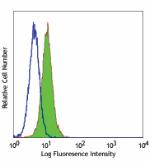
Human Hela cell line stained with purified 6D4, followed by ... -
Biotin anti-human MICA/MICB
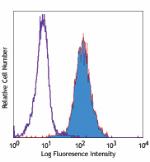
Human Hela cell line stained with biotinylated 6D4, followed... -
PE anti-human MICA/MICB
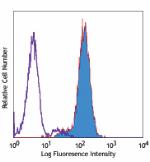
Human Hela cell line stained with 6D4 PE -
APC anti-human MICA/MICB
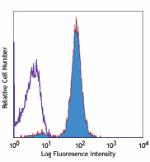
Human Hela cell line stained with 6D4 APC -
Alexa Fluor® 488 anti-human MICA/MICB
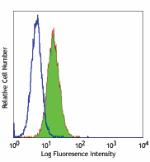
Human Hela cell line stained with 6D4 Alexa Fluor® 488 -
Alexa Fluor® 647 anti-human MICA/MICB
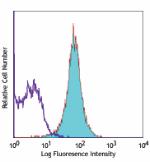
Human Hela cell line stained with 6D4 Alexa Fluor® 647 -
PerCP/Cyanine5.5 anti-human MICA/MICB
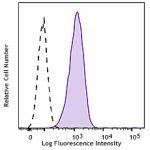
HeLa cells (human adenocarcinoma cell line) were stained wit... -
PE/Cyanine7 anti-human MICA/MICB
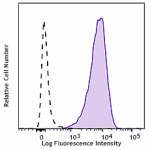
HeLa cells (human adenocarcinoma cell line) were stained wit... -
Ultra-LEAF™ Purified anti-human MICA/MICB

Human Hela cell line stained with purified 6D4, followed by ... -
TotalSeq™-A0919 anti-human MICA/MICB Antibody
-
TotalSeq™-D0919 anti-human MICA/MICB
-
TotalSeq™-B0919 anti-human MICA/MICB
-
TotalSeq™-C0919 anti-human MICA/MICB
 Login / Register
Login / Register 





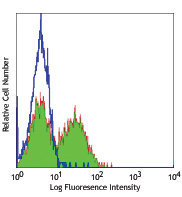
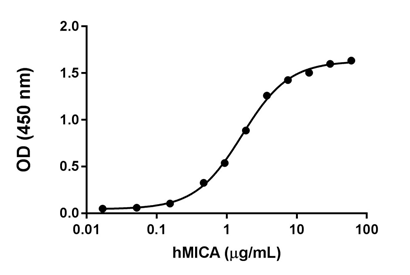
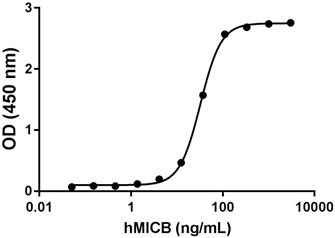



Follow Us